Hong Kong’s top court hears landmark case over spousal visa for British lesbian
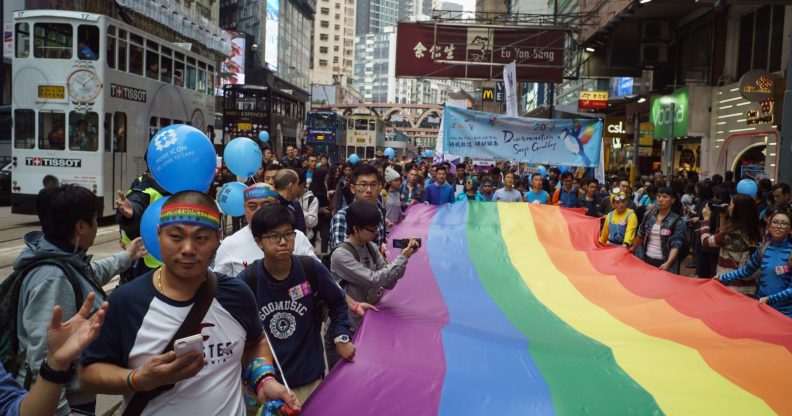
A Pride parade in Hong Kong. (AARON TAM/AFP/Getty Images)
Hong Kong’s top court has begun to hear an appeal for a landmark case which could have a significant impact on LGBT rights in the territory.
A lesbian, who is known only as QT for legal reasons, is married under UK law to SS, with whom she first got a civil partnership in 2011.
The pair found themselves facing discrimination when SS relocated to Hong Kong for work – which would usually allow SS to bring a husband on a spousal visa.
However, as they are a same-sex couple and their marriage is not recognised under Hong Kong law, immigration authorities in the former British colony repeatedly rejected QT’s spousal visa application.
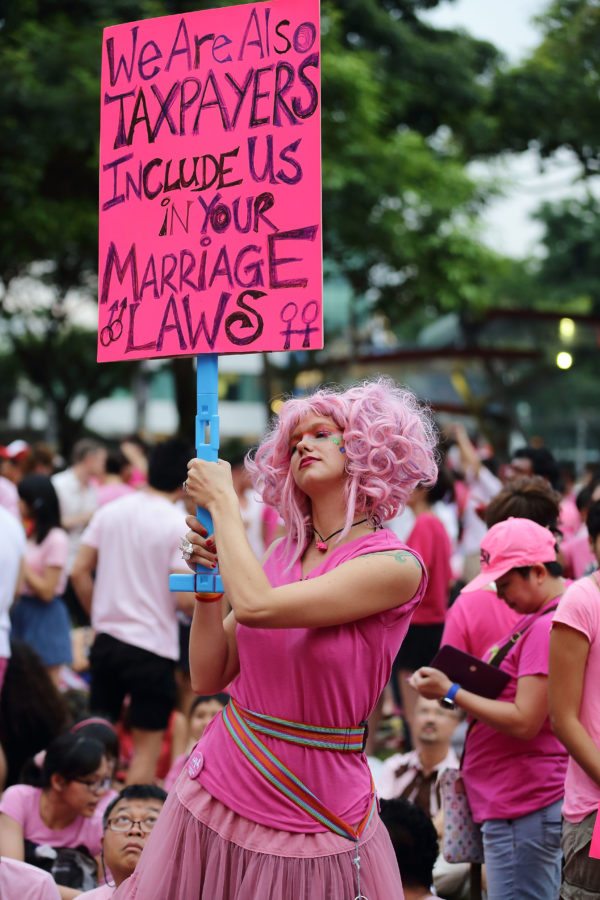
(Suhaimi Abdullah/Getty Images)
Without the correct visa to reside in the country, QT could only travel there on a tourist visa, which does not permit her to work.
QT then sued Hong Kong’s immigration director for denying her a spousal visa.
Related: Hong Kong overturns ruling granting spousal benefits to husband of gay civil servant
QT lost her case in the lower court, but then won at the Court of Appeal in 2017, which ruled that the immigration department’s refusal to grant her a visa was indirect discrimination.
The immigration department then appealed the Court of Appeal’s decision, which brought it to Hong Kong’s highest court, the Court of Final Appeal.
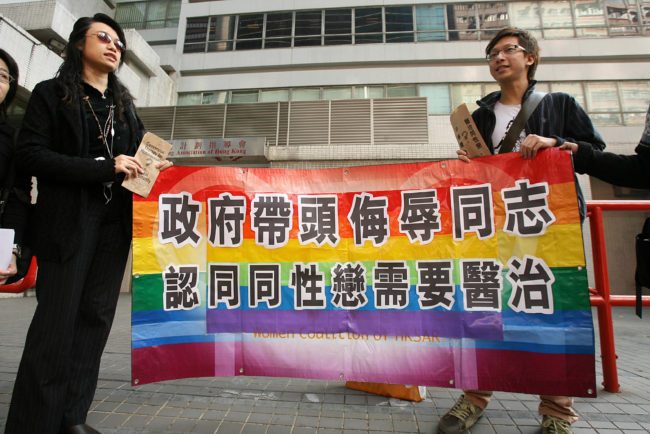
(MIKE CLARKE/AFP/Getty Images)
QT has been supported by 31 major banks and law firms, as well as Amnesty International, many of which have sought to advocate for her directly in the case.
According to Reuters, QT’s lawyer Dinah Rose, QC, told the Court of Final Appeal that the immigration policy was discriminatory as it placed LGBT couples at a disadvantage compared to their heterosexual peers.
“Every single gay couple is unable to comply with the policy,” Rose said on Monday.
She added that it was striking that corporations and businesses – including Goldman Sachs and Barclays – had taken an interest in the case.
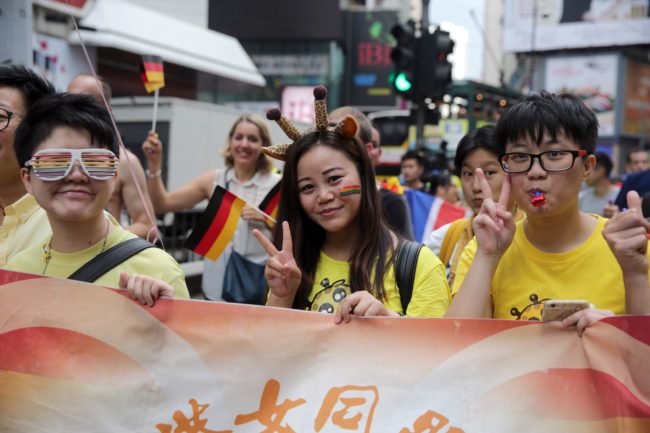
(Isaac Lawrence/AFP/Getty Images)
Rose said: “The businesses are concerned the discriminatory way… is impeding their ability to recruit the best people, gay or straight, to work in Hong Kong, so Hong Kong can compete and thrive in an international market.”
Representing the government of Hong Kong, Lord David Pannick, QC, stated that the immigration department was not required to recognise same-sex marriages from abroad.
Neither same-sex marriage or civil partnerships are currently recognised in Hong Kong.
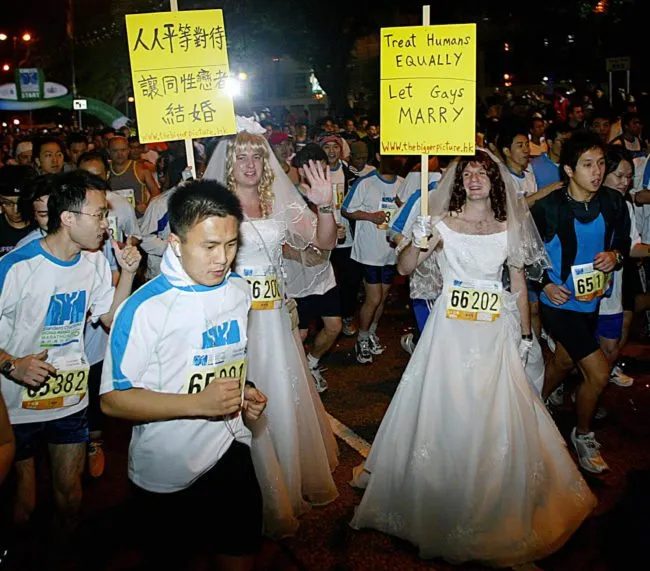
(ALJIBE/AFP/Getty Images)
Pannick said that the director of immigration had the power to grant the visa, but was under no obligation, stating: “He may choose to go further than that, but he has no duty to do so.”
However, Chief Justice Geoffrey Ma stated that the immigration department’s stance on marriage was “inconsistent” as same-sex partners of consular staff were granted the visas.
Ma said: “It does call into question… whether this sort of difference in treatment is actually right, whether it is fair.”

